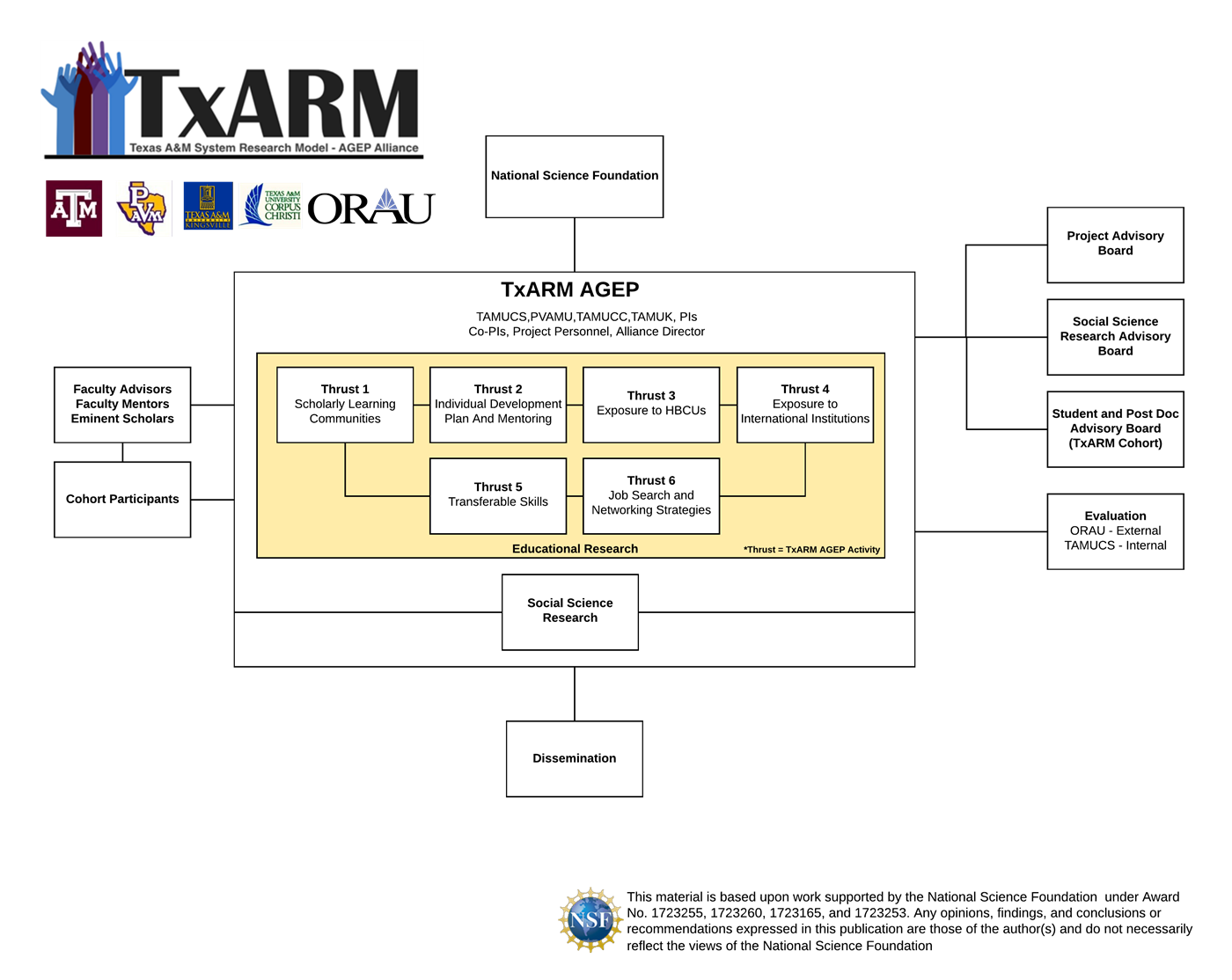About
About TxARM - Texas A&M System Research Model - AGEP Alliance
This alliance was created in response to the NSF's Alliances for Graduate Education and the Professoriate (AGEP) program solicitation (NSF 16-552). The AGEP program seeks to advance knowledge about models to improve pathways to the professoriate and success of historically underrepresented minority (URM) graduate students, postdoctoral fellows and faculty in specific STEM disciplines and/or STEM education research fields. AGEP Transformation Alliances develop, replicate or reproduce; implement and study, via integrated educational and social science research, models to transform the dissertator phase of doctoral education, postdoctoral training and/or faculty advancement, and thetransitions within and across the pathway levels, of URMs in STEM and/or STEM education research careers. This Alliance is also funded by the NSF Research Traineeship Program (NRT) and the NSF's Historically Black Colleges and Universities - Undergraduate Program (HBCU-UP).
As the nation addresses a STEM achievement gap between URM and non-URM undergraduate and graduate students, our universities and colleges struggle to recruit, retain and promote URM STEM faculty who serve as role models and academic leaders for URM students to learn from, work with and emulate. Recent NSF reports indicate that URM STEM associate and full professors occupy 8% of these senior faculty positions at all 4-year colleges and universities and about 6% of these positions at the nation's most research intensive institutions. The Texas A&M System AGEP Alliance has potential to advance a model to improve the success of URM graduate students and post-doctoral scholars as they enter and advance in the STEM professoriate.
The Texas A&M System AGEP Alliance is developing, implementing and studying a new model for advancing dissertating STEM doctoral candidates as they complete their doctorates, enter postdoctoral fellowships, and succeed in faculty positions. Participants include women and men who are either African American, Hispanic American or Native American and who are majoring in the fields of Biomedical Engineering, Chemistry, Electrical and Computer Engineering, Environmental Engineering, Marine Biology, and Wildlife Science. The model development, implementation and testing, focuses on a unique set of interventions, including using individualized development plans for participants as they transition from dissertator to postdoctoral scholar to faculty; providing participants with professional development opportunities related to communication, writing, networking and job preparation/transition; supporting participants with mentors at the institutional and field-specific expert levels; and offering participants opportunities to experience academic culture and activities at historically black colleges and universities. The integrated research will address the effects of stigmatization on male and female adults who are non-STEM and STEM African Americans and Hispanic Americans. The formative and summative evaluation is being conducted by Drs. Erin Burr and Kimberle Kelly, from the Oak Ridge Associated Universities. There is an external advisory committee which will provide feedback to the team on the effectiveness and outcomes of the project, as well as a separate external advisory group for the integrated research studies.
Participant Expectations
Advisor/Mentor Roles
TxARM Project Functional Chart

